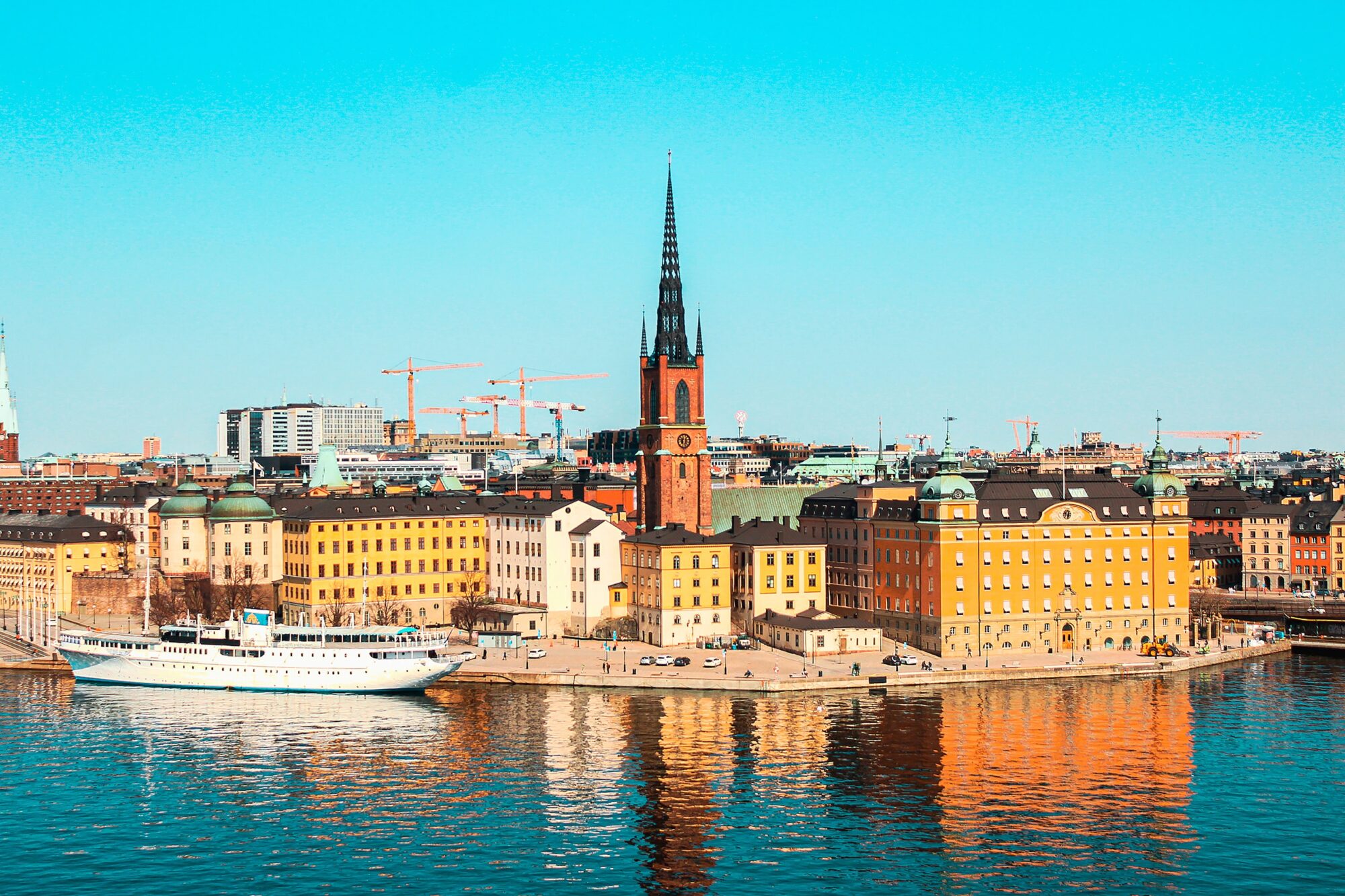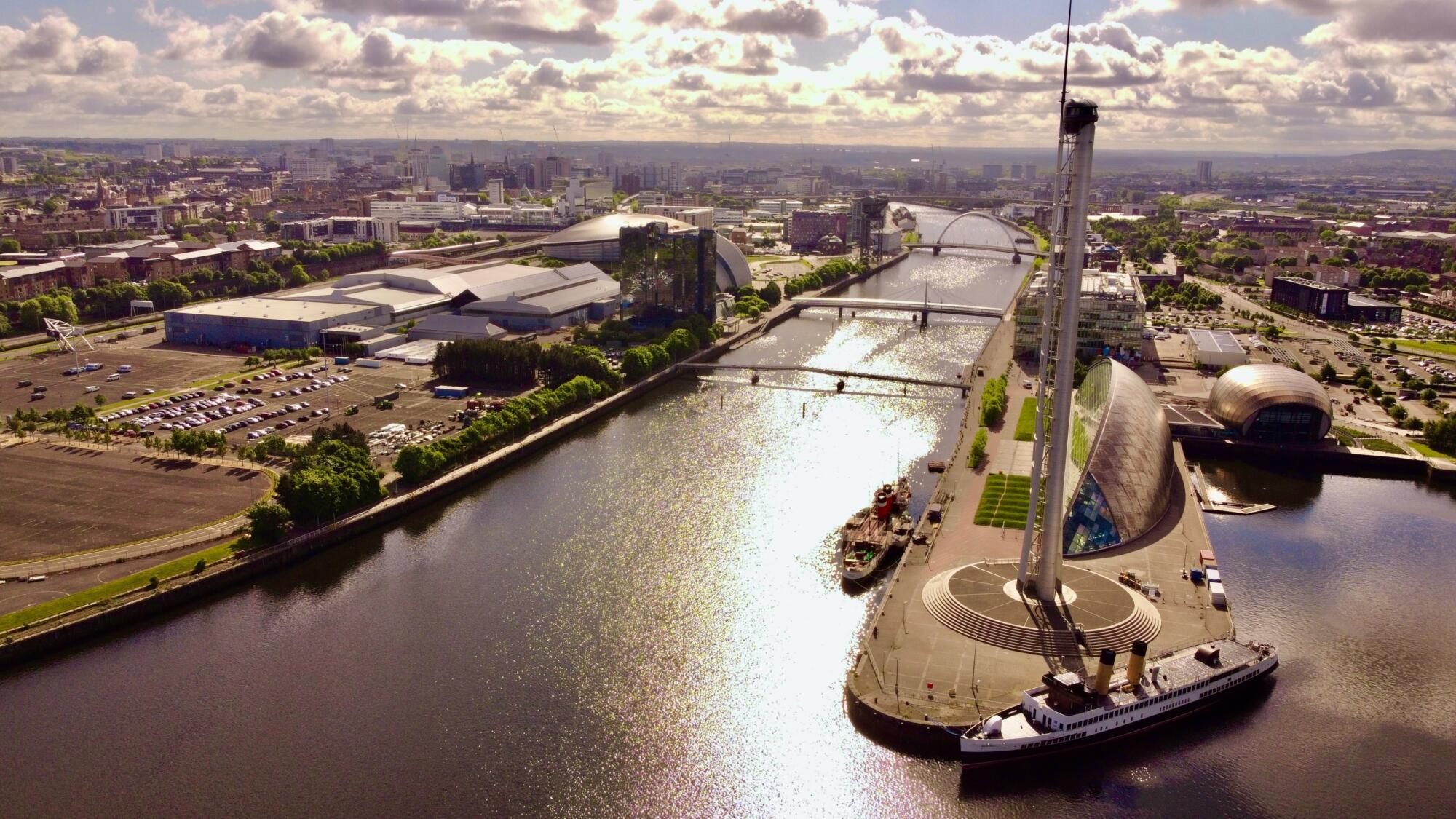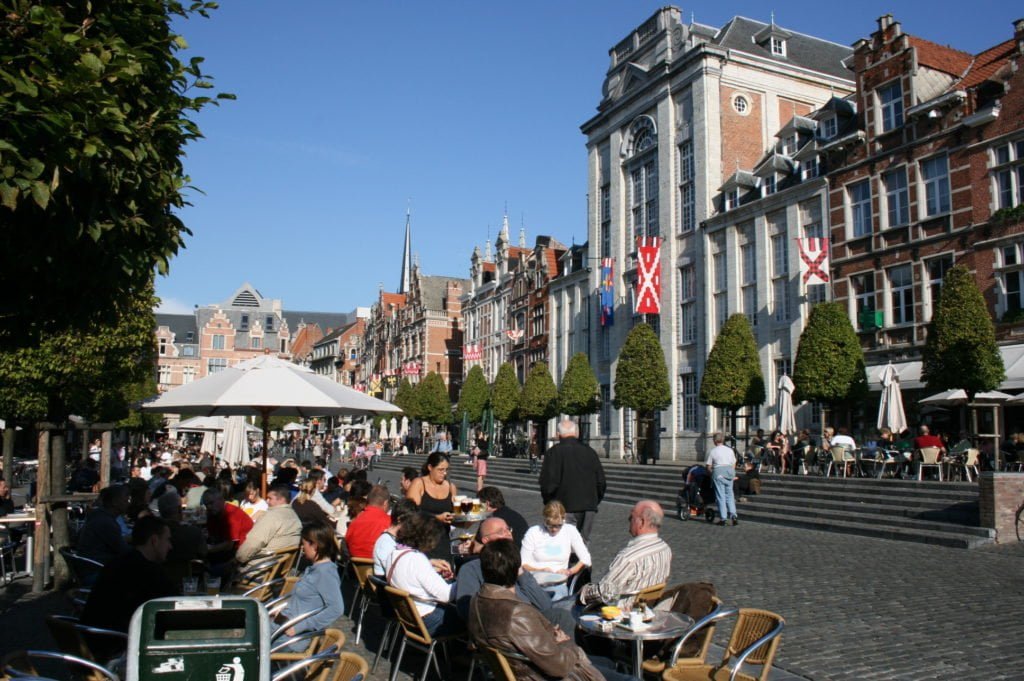Transport leaders walk the talk at POLIS' Leadership Summit
The clock is ticking: it will take strong, concerted leadership to deliver sustainable urban mobility on time. POLIS’ Leadership Summit on 8 June in Stockholm brought together high-level transport decision-makers to discuss the future of sustainable transport, and how we pull the public and private sectors together to cut carbon, end car dependency, and place liveability and justice at the heart of action.
Cities and regions are on the frontline of climate action. Estimates from the UN suggest that cities are responsible for 75% of global CO2 emissions, with urban mobility being among the largest contributors, responsible for almost one-quarter of the European Union’s greenhouse gas emissions from the transport sector.
However, reducing CO2 emissions is not the only challenge facing urban mobility. Congestion is costly to local businesses and negatively impacts liveability, road safety remains a critical concern, and existing fuel sources present genuine security and health threats.
On 8 June, POLIS teamed up with the City of Stockholm (the first city to develop its climate-neutral city contract) to host the second edition of its Leadership Summit. Local leaders from cities and regions across Europe joined leaders from the industry, NGOs, operators, new mobility providers, think tanks and international policymakers for a frank, honest and collaborative exchange on sustainable urban mobility and the multiple challenges to be tackled.

Leaders from across urban mobility unite in Stockholm - Credit: Angelica Zander
“The scale and the speed at which this change must happen is one of the biggest challenges ever faced by cities – and it calls for clear and committed leadership. Cities and regions are vital to advance this transition on the ground, and local and regional leaders have key roles to play,” said Karen Vancluysen, Secretary General, of POLIS Network
This Summit elevated the voices of local decision-makers on an international stage, placing them in direct conversation with international organisations, including the OECD and the European Commission, major sector representatives like the European Cyclists Federation, Cycling Industries, and Walk21, industry leaders including Google, and start-ups like Streetscape who are shaking up the transport sector.

Karen Vancluysen and Lars Strömgren, Vice Mayor of Transport, City of Stockholm welcome delegates to the summit - Credit: Angelica Zander
“Stockholm aims to be climate positive by 2030 and a key aspect of this ambition is innovative mobility initiatives, making it easier for everyone to fulfil their transportation needs sustainably. Stockholm was therefore proud to host this important Summit,” said Lars Strömgren, Vice Mayor of Transport, City of Stockholm.
Cities and regions are where some of the most important and transformative changes in transport are occurring. Indeed, following the lack of progress at recent major international climate summits, local leaders are pioneering steps towards more sustainable mobility. From Groningen to Glasgow, Lisbon to Ljubljana, transport decision-makers are reconfiguring and redefining mobility. These are cities that are almost unrecognisable from just a few years ago and substantial actions like Low Emissions Zones, school streets, public transport expansion and active travel infrastructure are accelerating.
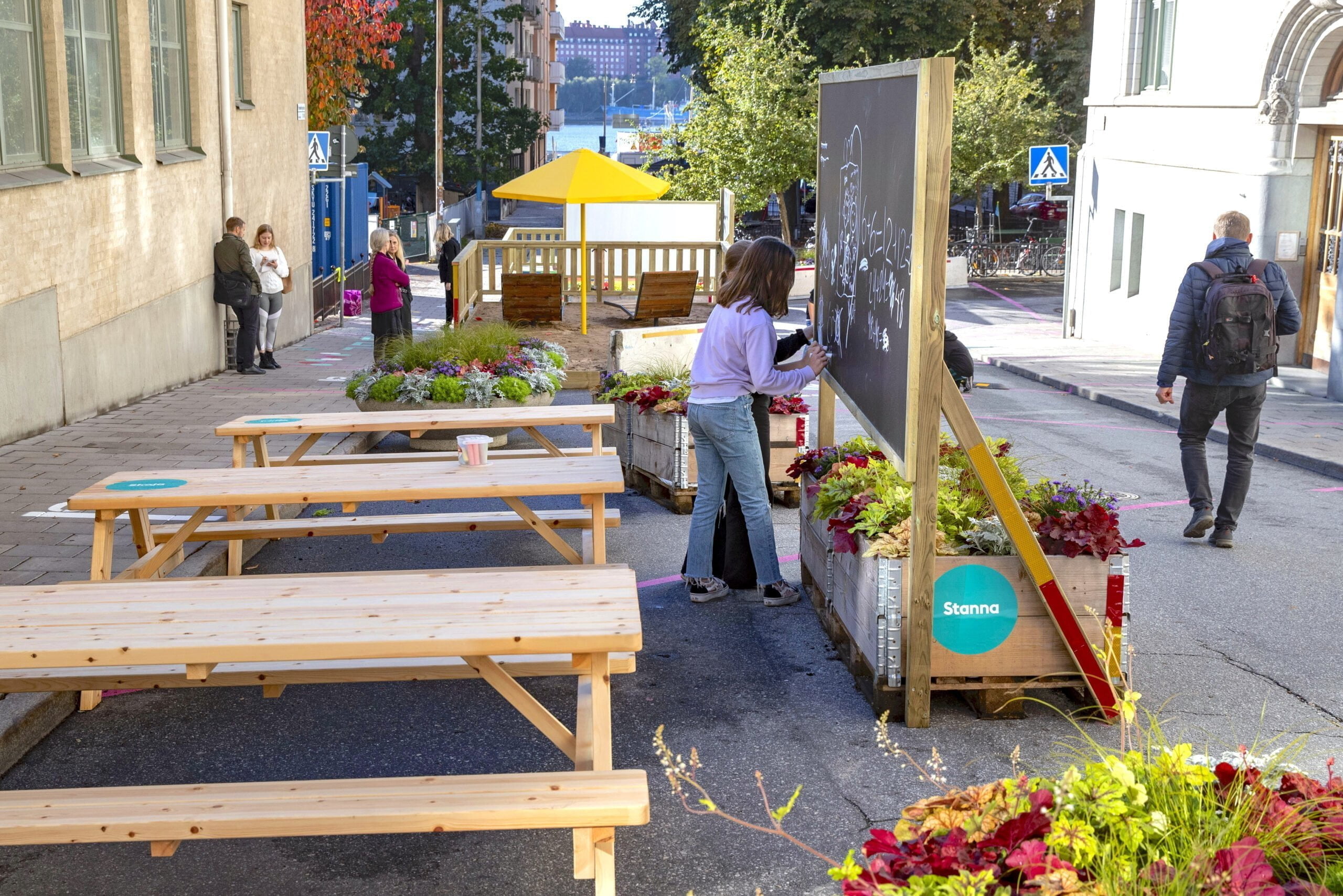
Parking space turned outdoor classroom - Credit: StockholmStad
The Summit hosted discussions on the critical actions which need to be taken and the opportunities for progress, examining upscaling electromobility, overcoming car dependence and ensuring a just transition.
The last few years have seen unparalleled advances in electrification. The array of electric private passenger vehicles, bus fleets, bikes, as well as charging solutions, was almost unimaginable even a decade ago. While electrification is instrumental in decarbonisation agendas, a clear and honest conversation about its role in the future of urban mobility is critical in understanding the potential, the gaps and the limits.
Electrification is only one piece of the puzzle. A cleaner and smarter city is one where the car is no longer king. Currently, in many European cities, way over half of ground transport space is dedicated to cars. As Stockholm’s own mobility strategy articulates, it is about moving towards a city with cars – not a city for cars.
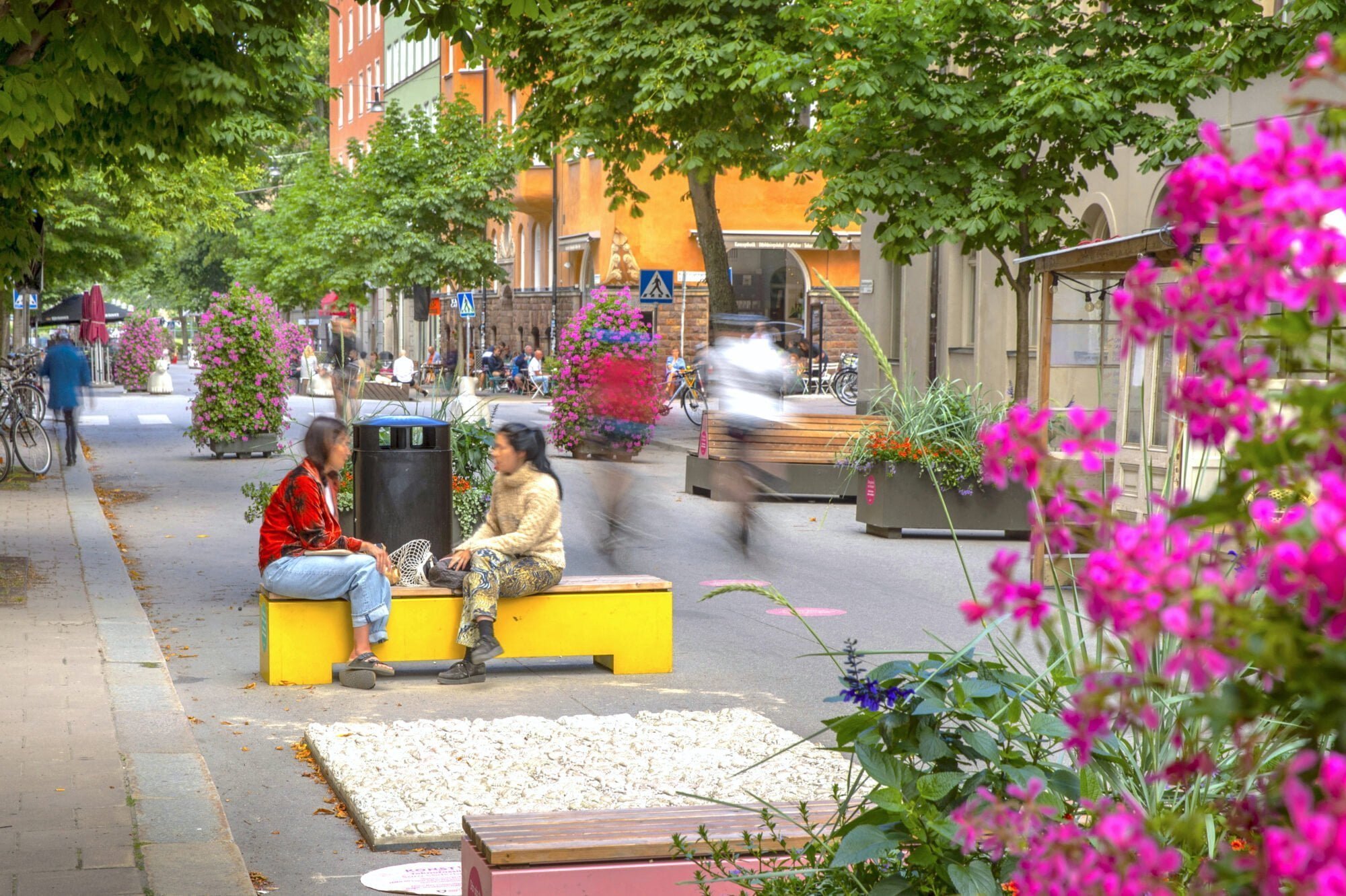
One of many streets now for pedestrians. in Stockholm - Credit: Lennart Johansson
There appears to be no shortage of arguments for dethroning the private car- cleaner air, safer roads, and more public space; however, implementing the policy and infrastructural changes required are taking time, time we do not have.
This is not to overlook the changes which are being pioneered; nonetheless, these shifts are proving a thorny issue for many local leaders, who, without the support of citizens, local businesses and national leaders, cannot move at the pace required.
The Summit also examined the importance of renewed focus on a just transition, ensuring sustainability agendas consider the spectrum of user needs. From education to employment to healthcare, transport facilitates and impedes access to vital services and opportunities. Yet, traditional mobility systems reflect, replicate and aggravate existing social and economic inequalities.
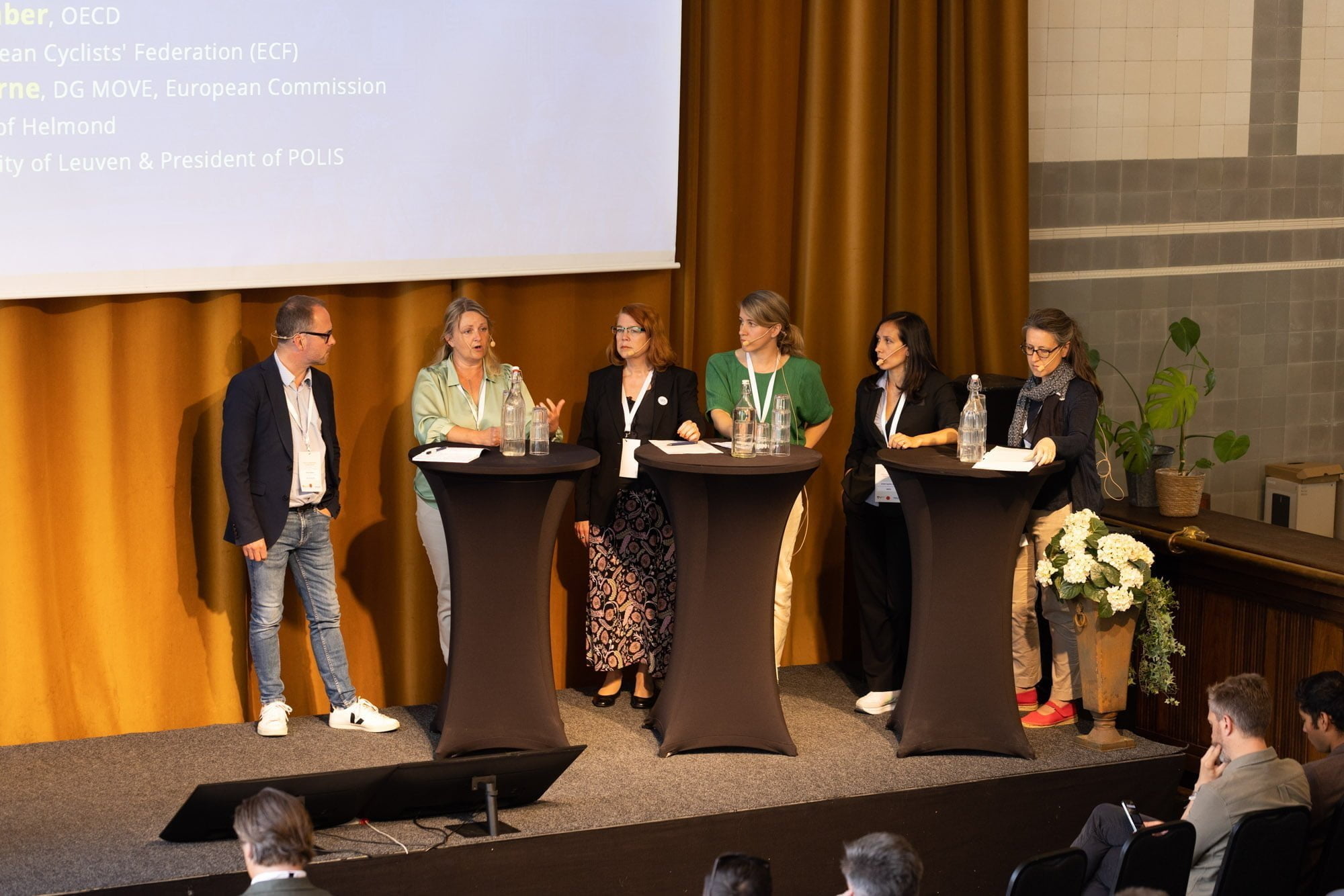
The panel discuss Climate Justice needs Transport Justice - Credit: Angelica Zander
The Summit was a chance for public and private sector collaboration, creating and renewing ties across the sector, and high-level decision-makers discussed how they can pull together in the same direction to accelerate the shift to sustainable urban mobility.
Indeed, it is only through such cooperation that sustainable urban mobility agendas will move from ambition to action. Responsibility is not squarely on the shoulders of cities and regions; the whole mobility sector will have a role to play in advancing the transport transition.
The Summit was a call to the entire sector to act faster, and more courageously. Dialogue is important, but time is not on our side, and actions speak louder than words.

